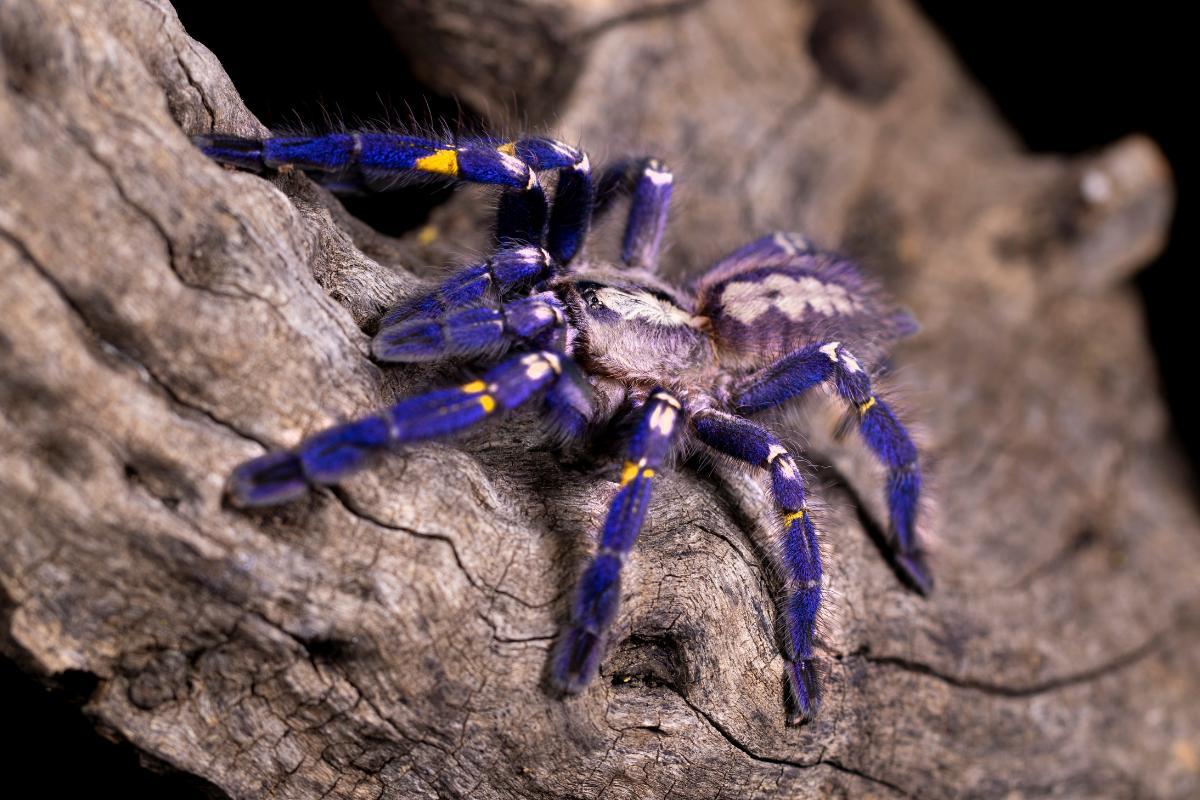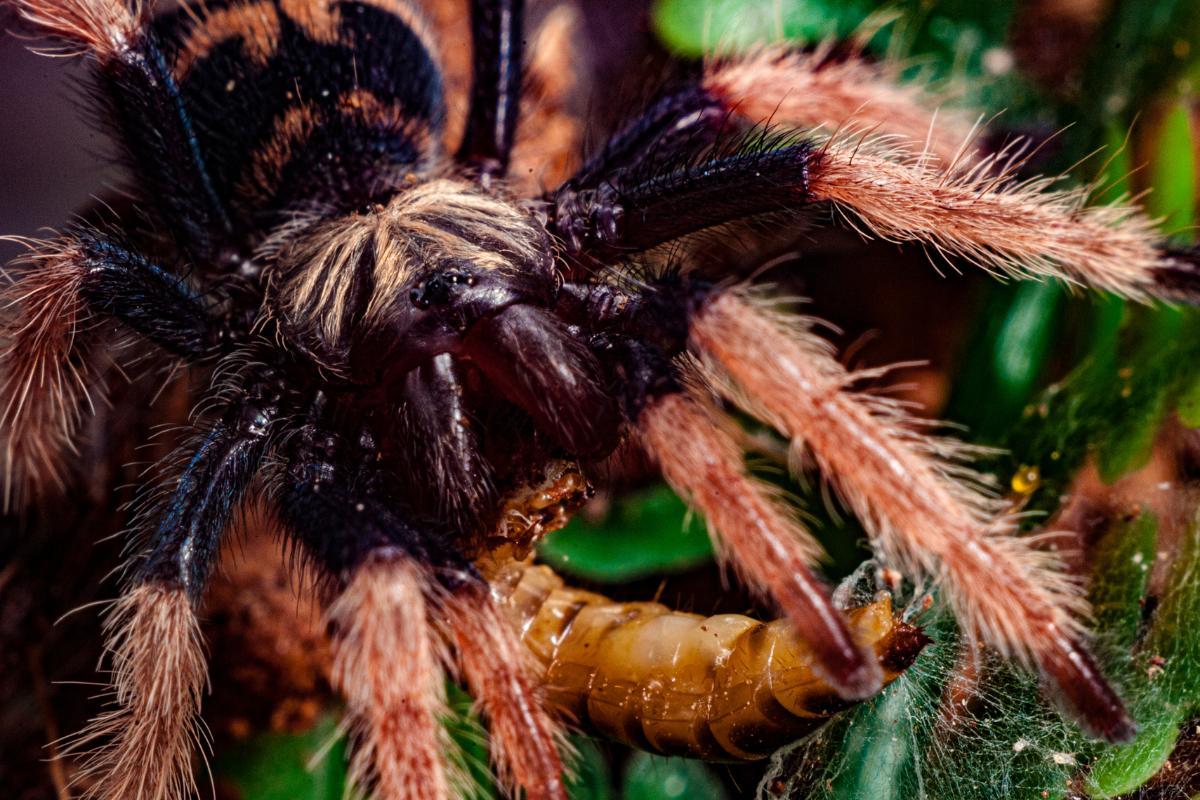Are Tarantulas Dangerous?


Tarantulas are often feared and misunderstood. Their large size and intimidating appearance can lead to the belief that they are highly dangerous. However, this is a common misconception. While tarantulas are venomous, their venom varies significantly between species, and many pose little to no threat to humans.
In this AnimalWised article, we will examine whether tarantulas are dangerous, uncover the facts about their venom, and provide valuable insights into the risks associated with tarantula bites.
Are tarantulas poisonous?
Yes, all tarantulas possess venom to varying degrees, which plays a crucial role in both hunting and defense.
They utilize their fangs, known as chelicerae, to inject venom into their prey—primarily insects and small vertebrates—effectively immobilizing them. This venom contains digestive enzymes that aid in breaking down the internal tissues of the prey, allowing the tarantula to extract nutritious fluids.
Tarantula venom is predominantly neurotoxic, affecting the nervous systems of its victims. Generally, this venom is tailored to target animals much smaller than humans, making it relatively low-risk for adults. However, its potency can differ significantly among species, with some tropical tarantulas exhibiting stronger venom.
Why are tarantulas not dangerous for humans?
While all tarantulas have venom, bites to humans are rarely life-threatening. Most encounters result in localized pain, swelling, and redness, similar to the effects of a bee or wasp sting, and these symptoms typically resolve within a few days. Nevertheless, some individuals may experience more severe allergic reactions that require medical attention.
Certain species, such as those in the genus Poecilotheria, native to India and Sri Lanka, have more potent venom that can cause intense symptoms, including acute pain, muscle spasms, dizziness, and, in rare cases, fever. However, these reactions are quite uncommon and generally not life-threatening for healthy individuals. Those who are immunocompromised, children, or have pre-existing health conditions should be especially vigilant for any unusual symptoms following a bite, as they may experience a more severe response.

Why are tarantulas poisonous?
Venom is a crucial evolutionary adaptation for tarantulas, enabling them to effectively capture prey and defend against predators.
As nocturnal hunters, tarantulas do not rely on webs like many other spider species; instead, they use the strength of their fangs and their potent venom to subdue and paralyze their victims.
The venom acts swiftly on the prey’s nervous system, inducing paralysis and facilitating easier feeding. Enzymes present in the venom then liquefy the prey’s internal organs, allowing the tarantula to efficiently extract nutrients.
In addition to aiding in hunting, venom serves an important defensive function. Although tarantulas generally prefer to avoid confrontation, they will bite if threatened or cornered. The potency of the venom varies by species, primarily adapted to deter small predators such as birds, reptiles, and mammals rather than to harm humans. In some instances, tarantula venom can also serve as a deterrent, acting as a warning signal to prevent future attacks.
If you’re intrigued by spider venom, dive deeper into the world of the deadliest spiders with our next article.
Can tarantulas be harmless?
All tarantulas are venomous, but the toxicity of their venom varies greatly. While their venom is primarily used for hunting, it rarely poses a significant threat to humans. In most cases, a tarantula bite causes localized pain, swelling, and possibly mild muscle spasms.
Some species, like Brachypelma hamorii and Grammostola rosea, have relatively mild venom that often leads to little more than discomfort. Many popular pet tarantulas fall into this category, known for their docile nature and low toxicity.
It's important to note that while the risk of serious harm from a tarantula bite is low, it's still advisable to handle them with care and avoid contact if you have any concerns.

What to do if a tarantula bites you?
Tarantulas do bite, and if you find yourself bitten by one, it's crucial to remain calm. Most tarantula bites are not dangerous and rarely necessitate medical attention. It's important to note that some people may have allergic reactions to tarantula venom, so it's best to avoid handling them if you have any concerns.
Here are the recommended steps to follow:
- Wash the affected area thoroughly with soap and water to prevent infection.
- Use a cold compress or ice pack on the bite site to help reduce inflammation and alleviate pain. Be sure to wrap the ice in a cloth to avoid direct contact with the skin.
- Keep an eye on your symptoms. In most cases, pain and swelling will diminish within a few hours. If swelling persists or worsens, or if you experience more severe symptoms like shortness of breath, dizziness, or widespread swelling, seek medical attention immediately, as these could indicate an allergic reaction.
- If you experience severe pain, swelling, or any signs of an allergic reaction, seek immediate medical attention.
It’s important to remember that tarantulas are generally not aggressive and will only bite in self-defense if they feel threatened or cornered.
Intrigued by the world of arachnids? Discover what sets tarantulas apart from their spider relatives in our next article.
If you want to read similar articles to Are Tarantulas Dangerous?, we recommend you visit our Facts about the animal kingdom category.
- Escoubas, P., & Rash, L. (2004). Tarantulas: eight-legged pharmacists and combinatorial chemists. Toxicon , 43 (5), 555-574.
- Fuchs, J., von Dechend, M., Mordasini, R., Ceschi, A., & Nentwig, W. (2014). A verified spider bite and a review of the literature confirm Indian ornamental tree spiders (Poecilotheria species) as underestimated theraphosids of medical importance. Toxicon , 77 , 73-77.
- Rocha-e-Silva, TA, Collares-Buzato, CB, da Cruz-Höfling, MA, & Hyslop, S. (2009). Venom apparatus of the Brazilian tarantula Vitalius dubius Mello-Leitão 1923 (Theraphosidae). Cell and tissue research , 335 , 617-629.







